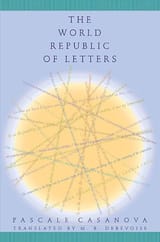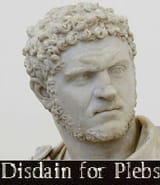Anonymous
7/11/2025, 10:13:27 AM No.24539851
I'm about 100 pages into this and it's really eye-opening on a series of topics. If you are a bit fed up with the idea that "canons" and "quality of literary works" exist in a void, and if you want to start thinking critically about how these things are built up in relationship to a specific colonial context of western supremacy, pick this one up. It gets particularly interesting when it talks about languages as tools for the reinforcement of nationalism, the shift toward a global culture or a "Weltliteratur" in the proper sense (including non-wester cultures now), and about the importance of translation in this new landscape.
Canons are starting to look very different nowadays, and this book is possibly the one that gave me the best overview into how and why things are (and are going to be) different now. Stop complaining about black authors being published and read a (good) book to understand WHY that happens instead of informing yourself on YouTube and twitter.
Also, if you come from a (non english speaking) European country whose literary tradition is getting increasingly irrelevant, you have much to get from this as it will explain how you are slowly becoming a colonial subject yourself, if you aren't already. Even if you strongly disagree (as I used to do) with historicized readings focused on showing how knowledge and culture are social constructs built as tools of power, and even if you deeply believe that books like Ulysses would have broken through and become "classics" regardless of the material conditions around them, you will still find much insight in this.
Canons are starting to look very different nowadays, and this book is possibly the one that gave me the best overview into how and why things are (and are going to be) different now. Stop complaining about black authors being published and read a (good) book to understand WHY that happens instead of informing yourself on YouTube and twitter.
Also, if you come from a (non english speaking) European country whose literary tradition is getting increasingly irrelevant, you have much to get from this as it will explain how you are slowly becoming a colonial subject yourself, if you aren't already. Even if you strongly disagree (as I used to do) with historicized readings focused on showing how knowledge and culture are social constructs built as tools of power, and even if you deeply believe that books like Ulysses would have broken through and become "classics" regardless of the material conditions around them, you will still find much insight in this.

